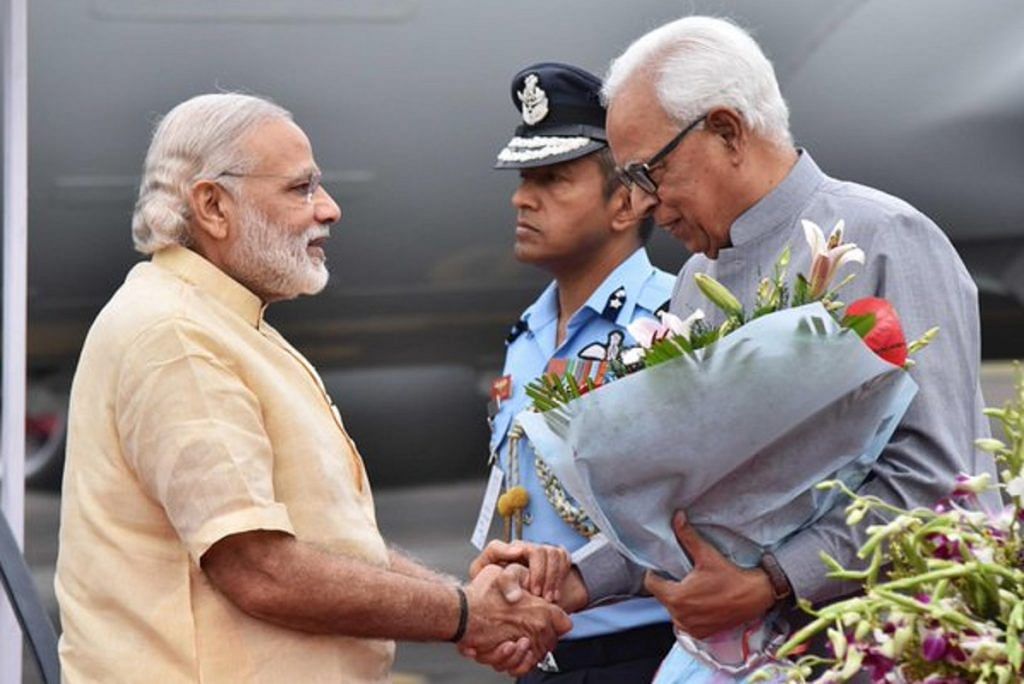J&K Governor and veteran bureaucrat says somewhere down the line, the security establishment will have to trust the politicians.
New Delhi: For a while, in the haloed halls of the Research & Analysis Wing (RAW), the country’s premier external intelligence agency, the idea of legislative oversight came alive on a Sunday evening.
The agent provocateur was no less than security veteran and Jammu & Kashmir Governor N.N. Vohra. His suggestion to the intelligence community, gathered for the annual R.N. Kao Memorial lecture, was to consider the “British model of parliamentary oversight”.
In the short exchange that went on, Vohra was abundantly clear: “Excessive security leads to problems…things go wrong when we try to cover up.”
You would take him seriously, because there are few who know and understand the security-intelligence business better than Vohra.
He has held almost every sensitive job in and across governments since the 1990s – defence secretary, home secretary, principal secretary to Prime Minister I.K. Gujral, and Atal Bihari Vajpayee’s Kashmir interlocutor, before being made J&K governor by Manmohan Singh. And he has lasted in Srinagar for the better part of PM Narendra Modi’s tenure.
But the comeback was equally prompt in the discussion that followed Vohra’s lecture. Why not start with administrative oversight, partly borrowed from the US?
Vohra was quick to respond.
He recounted one of his visits as defence secretary to the US when he met Colin Powell, then the Chairman, Joint Chiefs of Staff, and requested him to attend one of their restricted Congressional hearings on defence and security. “Mr Powell told me it would be difficult but he would try. And by afternoon, I was told it had been arranged,” Vohra said.
Vohra told his audience he had never witnessed such thorough grilling. “I had never seen such kind of questioning in my entire career,” he said, adding that veracity of every statement was checked, while in comparison, officials here are “hesitant to provide full answers”.
The US system, Vohra said, would be even “more intrusive” for the intelligence community, which is why he had suggested the relatively docile British system.
Vohra, in fact, suggested that intelligence agencies must have a defined charter, which could then inform their accountability mechanisms better. But he was quite certain that the nature of oversight had to involve the political leadership.
“Somewhere down the line, we have to trust the politician,” he said, trying to belabour his point.
The discussion eventually stayed there, and while the idea provoked more off-the-record conversations, what also came through was the other side, which often doesn’t get mentioned on record.
In reality, does the political leadership of the day really want the agencies under oversight?
Intelligence and investigative agencies are, after all, also seen as instruments of power with the political leadership of the day. Thus, the idea of oversight, in real terms, may go well beyond the remit of just the agency concerned.
It’s on this complex question that the debate turns a full circle. Eventually, it appears, no one in power wants to let go of this unfettered authority.
Which is why, perhaps, veterans such as Vohra, believe that parliamentary oversight is the best workable form of checks and balances.
And while it seemed the idea had died a premature death by the end of the evening, Vohra left with a good quip to ponder: “Oversight is not a nefarious thing.”
